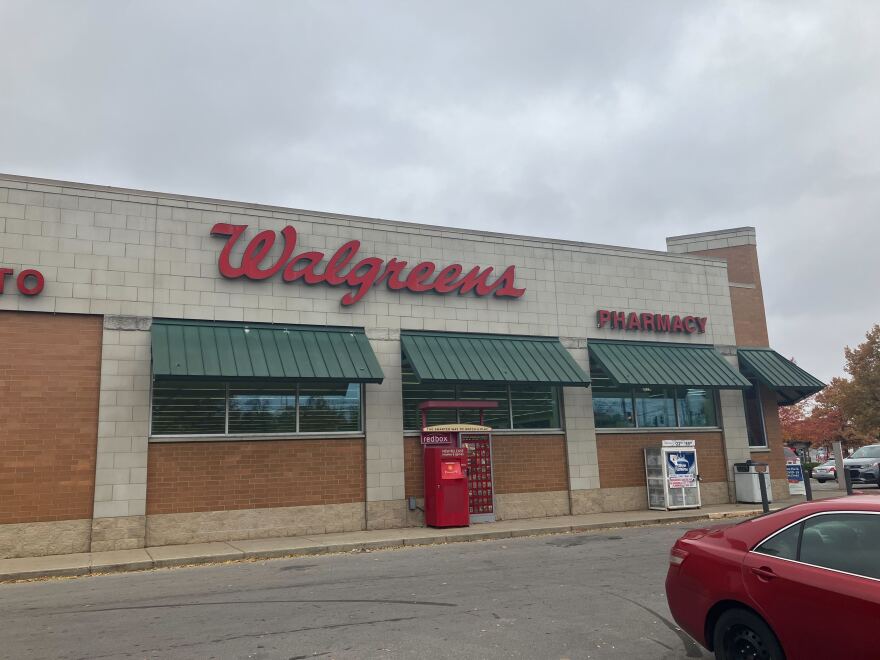89.3 WFPL News Louisville · With 4 Walgreens about to close, some Louisvillians seek new pharmacies
Residents and an expert say the planned closures of several Walgreens locations could put a burden on those who will have to travel farther for essentials, such as prescription medications.
Walgreens is one of several major chains, along with CVS Pharmacy and Kroger, where Louisvillians can purchase prescriptions and other health care items.
The national grocery and pharmacy chain will close four stores:
- 4149 Taylor Boulevard on Nov. 7
- 7500 Terry Road on Nov. 9
- 700 Algonquin Parkway on Nov. 14
- 200 East Broadway on Nov. 17
Company spokesperson Kris Lathan said in an emailed statement that pharmacy customers at the closing stores would have their files transferred to the nearest open Walgreens location and be notified of changes.
“When faced with the difficult task of closing a particular location, several factors are taken into account, including things like the dynamics of the local market and changes in the buying habits of our patients and customers, for example,” Lathan said.
According to its online store locator, Walgreens currently has around 40 shops in Louisville.
Customers at the Walgreens on Algonquin Parkway in the Taylor Berry neighborhood recently shared mixed levels of concern over its closure.
David Blackburn lives less than a mile away from the store but said he doesn’t use it for its pharmacy.
“I usually just use the ATM, and sometimes I'll go in there and get a few things,” Blackburn said.
Aqua Long said the Taylor Berry closure will affect her family’s access to medication.
“It’s most definitely gonna have a negative impact, because now I gotta go farther to get my medicine for me and my kids,” she said.
Jamesetta Shackelford said she and other residents are going to need to find the nearest substitute.
“I think that everybody in this area that gets medicine or whatever, we’re all going to be trying to find the closest [store],” Shackelford said.
All four of the closing Walgreens locations are within two miles of another company store. The Taylor Berry location also has two Kroger stores with pharmacies under two miles away.
But long distances can be a burden for some residents, especially those without cars. A study published last year found that nearly a third of neighborhoods in the largest U.S. cities are “pharmacy deserts,” or areas where residents have to travel more than a mile to reach a pharmacy. The study did not examine Louisville.
The authors said that in low-income or low-vehicle neighborhoods, having to travel more than half a mile is considered a mark of a pharmacy desert. In the Taylor Berry area, around 1 in 5 households don’t have access to a car, according to data gathered by the local nonprofit Metro United Way. And nearly 40% of its residents live below the federal poverty line.
The study also found that predominantly Black or Hispanic/Latino neighborhoods are more likely to be pharmacy deserts than white areas.
Study co-author Jenny Guadamuz, a postdoctoral research associate at the University of Southern California, said those findings have implications for managing both chronic health conditions and the ongoing COVID-19 pandemic.
“These populations that have already experienced a disproportionate amount of COVID morbidity and mortality, are then being further excluded by having pharmacies close,” she said.
Guadamuz and her team described several possible solutions to pharmacy deserts, including tax incentives for stores to open in areas of need, and increasing reimbursements for pharmacies that serve low-income Medicaid patients.

